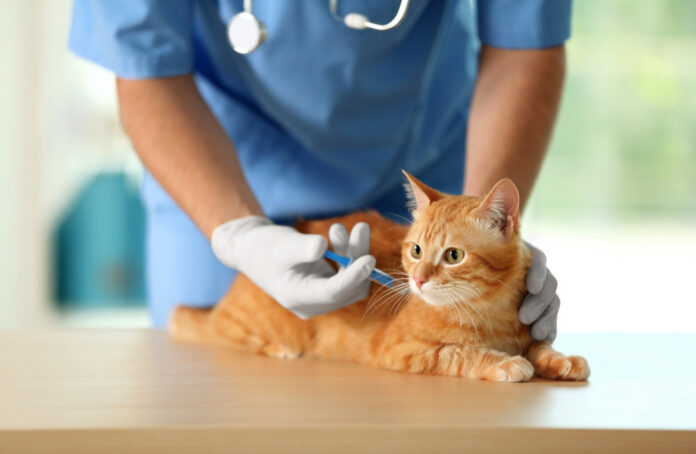Ensuring your cat’s health starts with a strong preventive care plan, and vaccination for cats is a critical part of that plan. Vaccines protect cats from serious and sometimes fatal diseases, reduce the spread of infections, and contribute to their overall well-being. Understanding which vaccinations are essential and when to administer them helps cat owners provide long-term protection for their pets.
Vaccinations for cats are designed to stimulate the immune system to recognize and fight specific pathogens. These vaccines prevent diseases such as feline viral rhinotracheitis, calicivirus, panleukopenia, and rabies. By following a proper vaccination schedule, pet owners ensure that their cats develop immunity early in life, which helps avoid costly treatments and distressing illnesses later on.
Core Vaccinations for All Cats
Core vaccinations are recommended for every cat, regardless of their lifestyle. These vaccines protect against diseases that are highly contagious or pose significant health risks.
- Feline Panleukopenia (FPV): Also known as feline distemper, this disease can be fatal, particularly in kittens. Vaccination provides strong protection against this highly contagious virus.
- Feline Herpesvirus (FHV-1) and Calicivirus (FCV): Often combined as the FVRCP vaccine, these viruses cause respiratory infections, oral ulcers, and chronic health issues. Vaccination helps prevent severe symptoms and limits viral spread.
- Rabies: Rabies is fatal and poses a risk to humans and other animals. Vaccinating cats against rabies is often a legal requirement and is crucial for public health safety.
Non-Core Vaccinations for Specific Risks
Non-core vaccines are recommended based on a cat’s lifestyle, exposure risk, or geographic location. Not all cats require these vaccines, but they are valuable for cats at higher risk of certain diseases.
- Feline Leukemia Virus (FeLV): This virus suppresses the immune system and increases susceptibility to other infections. Outdoor cats or those in contact with other cats are at higher risk and benefit from vaccination.
- Chlamydophila Felis: This bacteria can cause conjunctivitis and respiratory infections. Vaccination may be advised for cats in multi-cat households or catteries.
- Bordetella: Though less common, this respiratory infection is sometimes seen in cats in close-contact environments like shelters or boarding facilities. Vaccination can prevent outbreaks in such settings.
Timing and Booster Shots
Kittens require a series of vaccinations starting at around six to eight weeks of age. Follow-up boosters are necessary to ensure long-lasting immunity. The timing and frequency of vaccines depend on the specific vaccine and the cat’s age, health status, and risk factors. Adult cats also need regular boosters to maintain protection.
Veterinarians typically recommend an initial kitten series followed by a booster at one year, then subsequent boosters every one to three years depending on the vaccine. Regular check-ups provide an opportunity to review vaccination schedules and ensure that cats remain up to date.
Safety and Side Effects
Vaccinations for cats are generally safe, with serious side effects being rare. Mild reactions such as slight swelling at the injection site, lethargy, or mild fever can occur but typically resolve within a day or two. Monitoring cats after vaccination and communicating any concerns with a veterinarian ensures that any adverse reactions are managed effectively.
The Role of Vaccination in Preventive Care
Vaccination is a cornerstone of preventive veterinary care. Alongside regular health check-ups, proper nutrition, and parasite control, vaccines contribute to a longer, healthier life for cats. By reducing the risk of serious illnesses, vaccinations also minimize the emotional and financial burden of managing preventable diseases.
Additionally, vaccinated cats are less likely to transmit infections to other animals, which supports the health of the wider feline community. This is especially important in multi-cat households, shelters, or areas with a high density of cats.
Conclusion
Ensuring your cat receives timely vaccination for cats is one of the most effective ways to safeguard their health and longevity. Core vaccines protect against the most serious diseases, while non-core vaccines offer additional protection based on lifestyle and exposure risks. Regular veterinary consultations and adherence to a vaccination schedule are key to preventing illness and promoting a happy, healthy life for your feline companion. Investing in vaccines today ensures peace of mind and a foundation for lifelong wellness.



